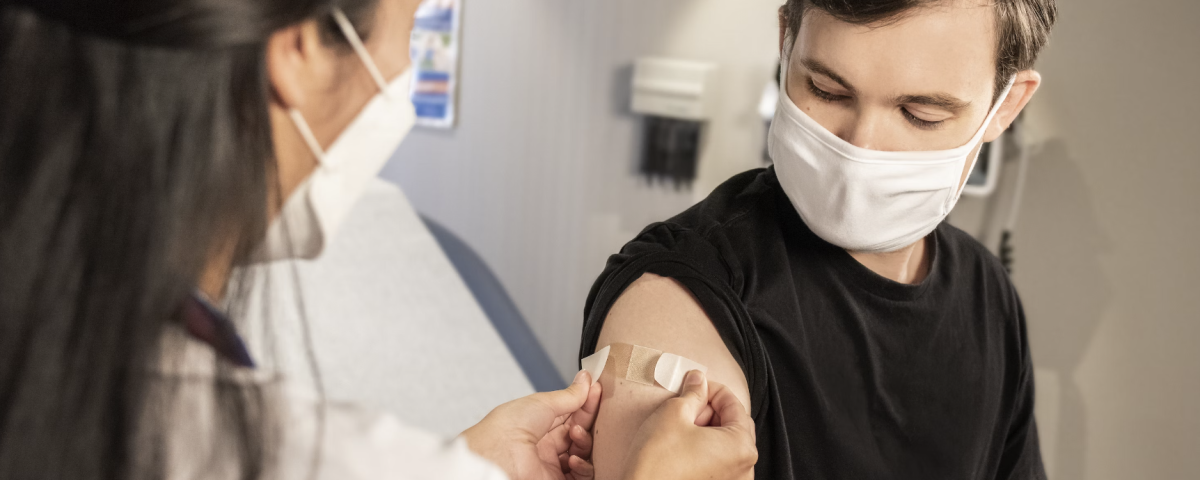
What is Seasonal Affective Disorder (SAD)?
November 7, 2023As the temperature drops, cold and flu season begins. School can put enough stress on students and their families by itself — let alone all of the opportunities to get sick! Follow these steps below to make sure you’re keeping your loved ones safe this school year. The healthier students are, the better learners they can become.
Back to school, back to the basics
It’s important to remember some of the basic pillars of health. Eating enough nutritious food, washing your hands, not touching your face, protecting skin from sun, staying active, and getting a good night’s sleep can all help improve your and your child’s health.
For the parents, limiting alcohol consumption and not using tobacco or e-cigarette products can help you stay healthy. But the same goes for kids as it does adults: eating nutritious food, staying active in ways you enjoy, getting a good night’s sleep will help you stay on your A game this school year. The healthier you are, the more your kids benefit!
Mental health is just as important as physical health!
As previously stated, healthier students make better learners. This goes for both physical and mental health. By creating and maintaining a supportive environment for your children, you are giving them space to ask for help if they need it.
Maintaining routines is one way to help your child if they are struggling with some mental health issues such as anxiety or depression. Being an active listener is another. Trying to understand and empathize with what they are going through can help your child immensely. Letting them know it’s okay that they are feeling the way they are feeling is also important. Not only will this help them be healthier, be a more active and engaged student, but will help them in other areas of their life as well—extracurriculars and social activities are important for a child’s development.
Staying up to date on vaccinations and doctor’s appointments
Annual check-ups and physicals are important to making sure your child stays healthy. These appointments can keep you and your doctor up-to-date on how your child is developing. Furthermore, these doctor’s visits will help you make sure your child is current with their vaccinations. There are many vaccinations that will help you and your family stay healthy, such as a COVID-19 booster, a flu shot, tetanus shots, and measles, mumps and rubella (MMR). These are just a few examples of the vaccinations kids need to keep your family safe, but other students in their classes safe, too.
If your child is feeling sick, you can also use telemedical services such as Direct2Care. Direct2Care allows families 24/7/365 access to experienced medical providers within minutes, all from the comfort of your own home. Visiting urgent care can be time consuming and sometimes, just not feasible. A service such as Direct2Care gives families convenience and access to quality healthcare. Board-certified providers at Direct2Care can diagnose, give health advice, prescribe medicine to your local pharmacy, and even recommend a specialist if they feel you require more medical attention. Click to find out more about the services Direct2Care can offer you and your family.
Media consumption—in moderation
While using social networking sites (SNS) or watching television can be fun, it’s important to make sure it is done—like all things—in moderation. More kids are online than ever, and research has shown that 8- to 12-year-olds spend 5.5 hours per day on screens on average (Common Sense Media). While media consumption can reap certain educational and community benefits, screens cannot replace physical social interaction.
In fact, they have been shown to do the opposite. Children that overuse media are not as able to participate in physical play. Additionally, according to the Cleveland Clinic, too much time spent on social media can change children’s behavior, such as “increased irritability, increased anxiety, [and] lack of self-esteem”. There are threats on the internet as well. Anonymity allows online predators, phishing scams, and cyberbullying to exist in a way that children have never interacted with before. Mediated media consumption can permit your child to use the internet without allowing them to overuse it to keep them the healthiest and happiest they can be.
Stay cool!
Even though the temperature has begun to drop in many parts of the United States, this isn’t yet true for the whole country. This summer has been the hottest summer ever recorded, with cities like Phoenix experiencing over a month of 110 degree days. Make sure you and your children are staying hydrated, using sun protection, limiting outdoor activity, and wear appropriate (light weight!) clothing. Heat illnesses are very dangerous, and staying as vigilant as possible is absolutely crucial to staying healthy.
Warming up
That being said, not being protected from the cold can negatively impact your health. We aren’t quite in the thick of winter yet, but it is important to be cognizant of how to stay protected as the seasons change. Exposure from the cold in inadequate clothing can result in hypothermia or frostbite. Hypothermia can happen when the body loses more heat than it is producing. Frostbite occurs when the skin, blood and nerves freeze. Children are more susceptible to these conditions than adults are. It is vital to make sure you and your children are wearing proper gear, such as multiple layers (including socks and a winter hat), insulated boots, good winter coat, and gloves.
Know who to call
If you have any medical questions or concerns about a condition that you or your child may have, Direct2Care is here for you. Get started using the Direct2Care app, available on the Apple App Store or on Google Play.




